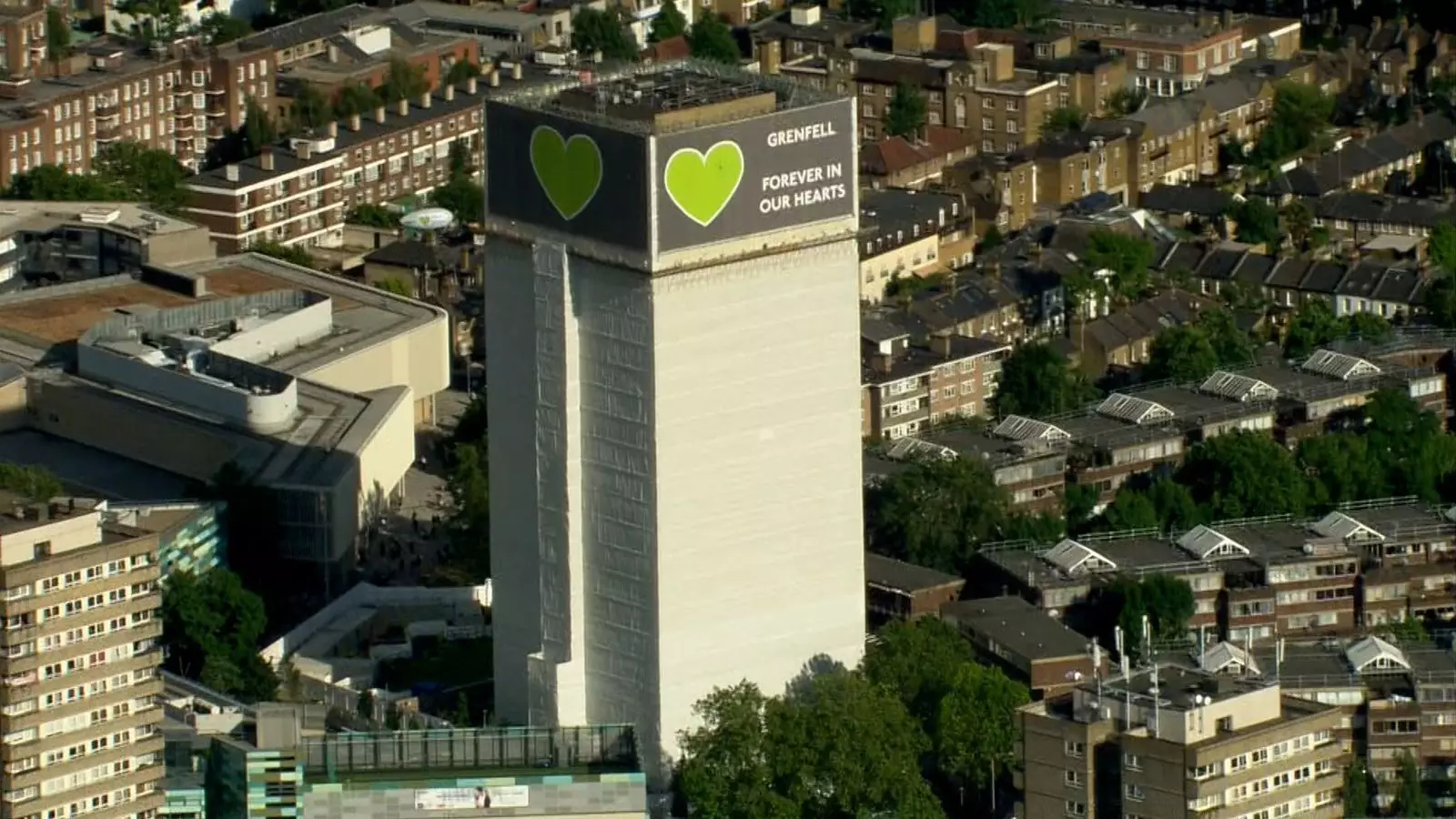The Grenfell Tower fire tragedy, which occurred in June 2017, remains a haunting reminder of systemic failings in housing safety and governmental accountability in the UK. With the government recently announcing plans to demolish the infamous structure, the outrage expressed by bereaved families and survivors has brought renewed attention to the ongoing battle for recognition and justice. The organization’s Grenfell United, a representative body for those affected by the tragedy, has characterized the government’s decision as “disgraceful and unforgivable,” raising critical questions about the legitimacy and inclusivity of the decision-making process.
Despite assuring the bereaved families that their voices would be central to any future developments, Deputy Prime Minister Angela Rayner’s recent consultation appears to have fallen short. Many family members expressed their discontent as they felt excluded from discussions that are intimately tied to their personal grief and loss. Feeling marginalized, these families find themselves facing yet another painful chapter in the saga of Grenfell, where their voices seem to have been disregarded entirely.
At the core of this situation is the lack of transparency surrounding governmental decisions that directly impact the lives of bereaved families. According to reports, Rayner failed to substantiate her decision with robust discussion outcomes or meaningful data from the four-week consultation. The collective disillusionment among attendees—a majority of whom were family members of the deceased—highlights a critical disconnect between the government’s assurances and the lived experiences of those affected. No one supported the demolishment at the meeting, yet the government maintains it is merely acting in accordance with the families’ wishes.
This disconnect reveals a fundamental flaw in how grieving individuals are often treated in policy decisions. The very space where they should find solace and recognition has transformed into a site of further trauma and division, exacerbating wounds that have barely begun to heal. It begs the question: How can future societal healing occur when the voices of those most affected are consistently overlooked?
As the government pushes ahead with plans to demolish the tower, discussions regarding how to commemorate the tragedy have gained urgency. Engineering assessments indicate that while the building remains structurally stable now, its condition is expected to deteriorate over time. This situation presents a profound dilemma for the bereaved families and advocates, who stress the importance of creating a lasting memorial that properly honors those who lost their lives.
Groups like Grenfell Next of Kin call for a forward-thinking discussion, emphasizing the need to envision new beginnings from the ashes of tragedy. They lament the lack of closure created by protracted debates over the tower’s future and propose a shift toward constructive conversations aimed at establishing a space of remembrance—a place that encapsulates the legacy of the individuals who perished in the fire, rather than simply demolishing the physical structure that held so much pain for those left behind.
This situation has broader implications for how society should engage with victims and their families in times of collective trauma. The Grenfell tragedy exposed multiple systemic failures, including issues related to housing regulations, emergency response, and governmental neglect. Yet, as authorities grapple with criminal accountability—still delayed until late 2026 according to the Metropolitan Police—families continue to seek acknowledgment of their suffering and a genuine effort to prioritize their perspectives in policy deliberations.
As Grenfell Tower’s fate hangs in the balance, the challenge for the government lies not only in leadership decisions but also in demonstrating insight into the pain of those affected by the tragedy. Establishing a paradigm for addressing the needs and desires of the bereaved will require deeper sensitivity and a commitment to listening—transforming their agonizing past into a foundation for renewed hope and societal restoration.
The danger of ignoring the sentiments of bereaved families is clear. It not only perpetuates cycles of trauma, but it can also erode public trust in government. To navigate this space of grief effectively, a balanced approach that emphasizes both respect for memories and the pursuit of viable solutions will be essential. In the aftermath of Grenfell, fostering an environment where every voice matters could be the first step toward genuine healing.


Leave a Reply